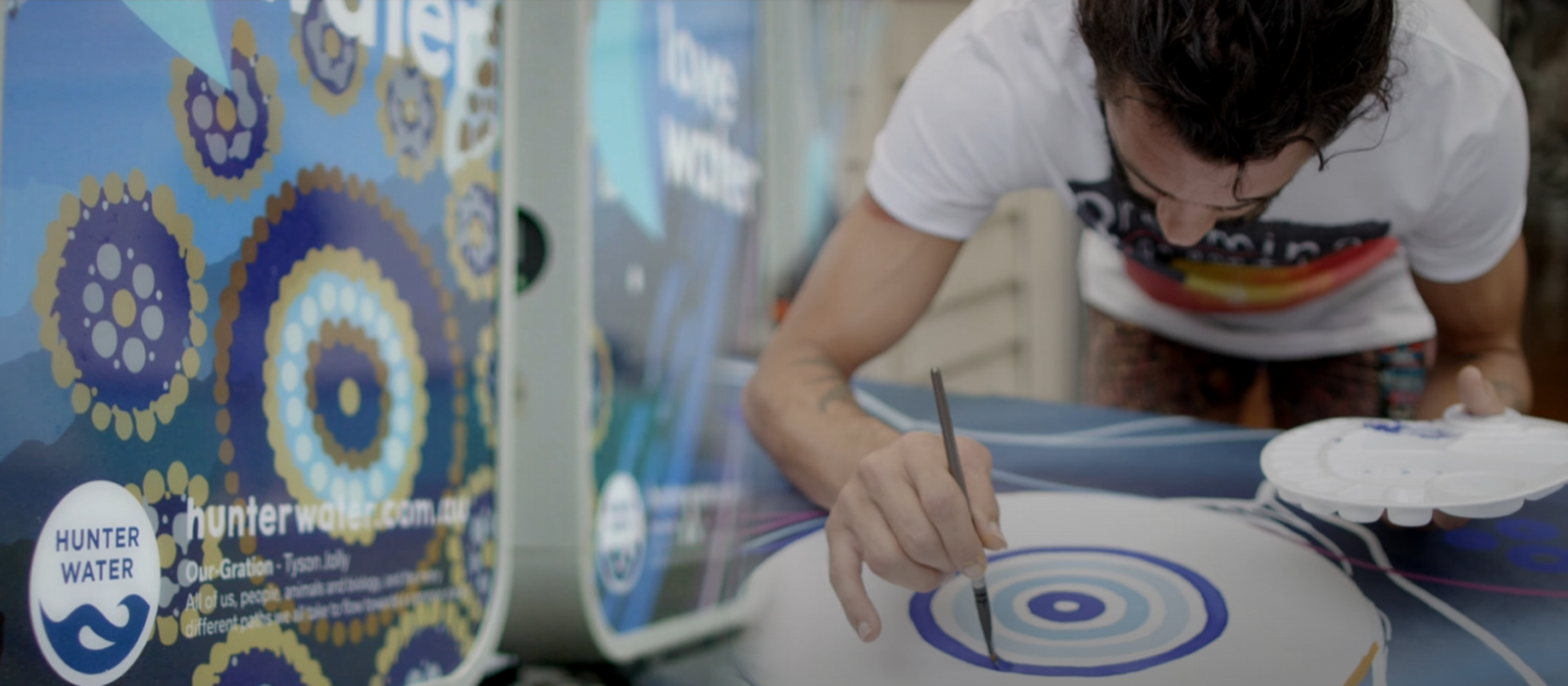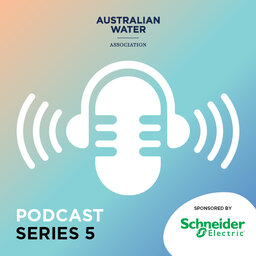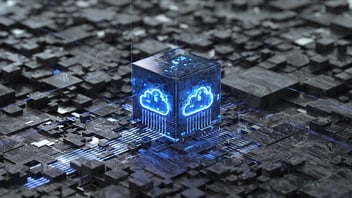Podcast – The power of indigenous art, reconciliation and conversation

In the latest episode of our United by Water podcast, host Jo Taranto sits down with Alicia Fry (Marketing and Business Communications Team Leader at Hunter Water) to discuss the 2023 Student Water Prize Paper ‘Water itself is life: how to encourage conversations through the power of Indigenous art’.
Hunter Water, like many utilities, have branding and there comes a time where it’s time to refresh, try out new avenues and also come together to include social value in the messaging of the brand.
Listen below!
Tell us about the branding opportunity and why that changed when you started thinking about the Reconciliation Action Plan?
We had the opportunity to rebrand our water bottle refill stations that we use at community events so something that's out and about in the community, they just needed a freshened up look, something a bit more modern and we realised that it was an opportunity instead of just putting a new fresh brand on it, to actually engage with an Indigenous artist and get them to help us create a new piece of art that we could use on that.
Part of that process is utilising their knowledge to tell a story about water so that we could then use it as a talking piece at events and a way to engage further with our community about water conservation and connection to Country.
Did you have a clear idea of what you wanted and how did that change when you first met Tyson?
I didn't have a clear idea of what I wanted, all I knew was that it needed to be told in the right way, a personal way from an indigenous artist that reflected our connection with water. I actually met Tyson on a day off on the weekend at a distillery in Newcastle, he was painting a surfboard as part of the festival and he was just chatting to people while he was painting so I approached him afterwards and he was definitely interested in helping us with the project and then just sort of after having a few chats with him I realised that it was going to be more than just the piece of art for the project and that it was a real opportunity to create a relationship and I saw the value in sharing that conversation.
What were the results?
We created a video of Tyson painting and while he's painting, you get to know his story and his experience and his messages about water. We shared the video to our social media pages and in Reconciliation Week. The response has been phenomenal. It’s our most engaged piece we’ve had on social media and the biggest reach for an organic post ever. The best part about the reach was that the indigenous community in our area had a unanimously positive sentiment as well, everybody felt really proud to be part of that and I guess when people are at events and they see the water stations, there is a sense of recognition of the artwork.
You said one of the most unexpected outcomes of this project was the effect that it had on staff at Hunter water? Tell us more
We engaged Tyson to work with our staff, we had our celebration event and Tyson did a live installation at that event. He painted a water tank and anybody that was at the event was able to come and help paint as well so while they were painting, they were having a chat to Tyson, hearing his stories and understanding his point of view and so it was really insightful for staff to be able to have those conversations instead of just seeing it on the video or the end product and Tyson actually told me a beautiful story that touched him in a huge way was that one of our executive managers had come up to him and thanked him for his words and his participation in the video and she mentioned that one time previously, she was going into a board meeting and she was nervous. She watched Tyson's video just before she went into the board meeting and it grounded her. I love the circle of that inspiration.
What did you learn from this process?
The biggest learning was the value of having those conversations rather than procuring somebody for a specific purpose. I know that I've developed a great relationship with Tyson and I hope because we've had that connection and we've continued those conversations, it's not just a business transaction. Moving forward, we're able to take those learnings and look at how we can sort of change how we do things in the future as well as how we engage Indigenous organisations. Just have an open mind about it and have those conversations.
Thank you to Alicia Fry and Jo Taranto.
This podcast is proudly sponsored by Schneider Electric





